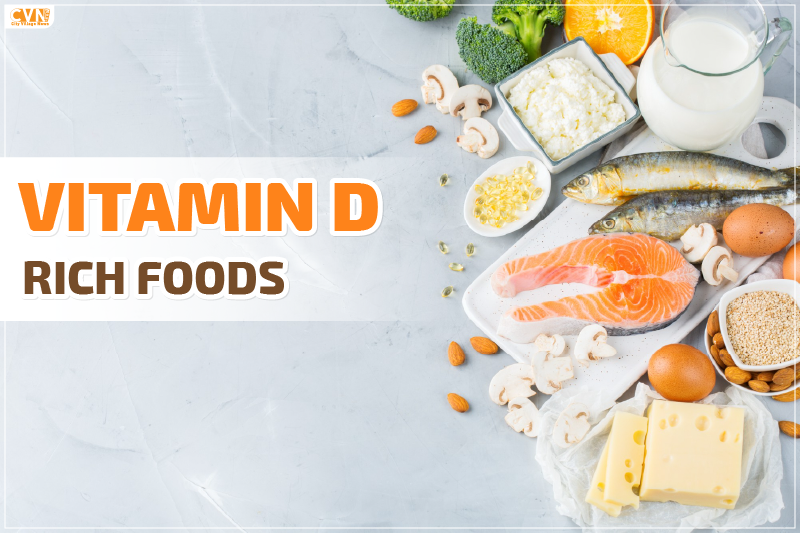You may not see it, but your brain notices. When your diet falls short on key nutrients, things start to feel off. Focus slips. Names fade. Simple thoughts take longer to form. And one often overlooked culprit behind that mental fog is low Vitamin D.
While it’s best known for supporting bones, Vitamin D works just as hard in the brain. It protects nerve cells, supports emotional stability, and helps you store and recall information more easily. The best part is, you don’t need fancy pills or complicated hacks. Just eat right, and do it consistently.
Here are five simple and natural foods rich in Vitamin D that support memory, focus, and long-term brain health.
Egg Yolks
Let go of the cholesterol myths, because inside the yolk is a compact package of brain essentials. With roughly 40 IU of Vitamin D and a solid amount of choline, each yolk helps fuel the creation of neurotransmitters tied to memory and mental clarity. However you cook it, a daily yolk can offer a steady lift to your thinking. It’s a gentle upgrade to your routine that brings long-term brain benefits.
Fortified Milk
Whether it’s dairy or plant-based, fortified milk is a go-to for Vitamin D, especially for vegetarians. Just one cup offers around 100 to 120 IU, depending on the brand. There’s more to milk than Vitamin D. It delivers calcium too, a mineral essential for neuron-to-neuron communication. And when your neurons fire better, your brain functions better. It’s that simple.
Sun-Treated Mushrooms
Plants typically don’t produce Vitamin D, but mushrooms break the rule. When cremini or maitake mushrooms are exposed to sunlight, they begin generating Vitamin D2, up to 1100 IU per cup. Set them out in direct sunlight for half an hour before you cook. That small habit adds a major nutritional punch. You’ll get a bonus of B-vitamins and antioxidants that support your nervous system and help manage stress.
Also Read: Is Your Plate Missing These Healing Superfoods?
Salmon
Salmon gives more than flavor. A 100-gram serving offers 400 to 500 IU of Vitamin D and omega-3s that reduce brain inflammation and improve circulation. This isn’t just anecdotal. Studies show people who eat oily fish regularly have better memory retention and slower cognitive decline as they age. Bake it, grill it, or toss it in a bowl. Your brain benefits either way.
Cod Liver Oil
If your Vitamin D levels are seriously lacking, cod liver oil is one of the most potent sources out there. Just one teaspoon contains around 450 IU, along with omega-3s and vitamin A, all of which support clearer thinking and reduce mental fatigue. You can take it straight or use capsules if the flavor isn’t your thing. For people battling brain fog or forgetfulness, it’s a supplement worth considering.
Role of Vitamin D in Preventing Memory Decline
It’s not just about sunshine. Vitamin D plays a key role in memory and mood by fighting inflammation and helping neurons survive where it matters most.
Clinical findings say it all:
- Higher Vitamin D in the brain is linked to better cognitive function
- People with low blood Vitamin D (<25 nmol/L) have a 50%+ increased risk of dementia
- Meeting the daily intake of 600–800 IU can help you stay mentally sharper for longer
How to Get Enough Vitamin D Through Everyday Foods
| Food | How Often | Approx. Vitamin D |
| Wild salmon | 2x/week (100 g) | ~500 IU each |
| Sun-treated mushrooms | 1 cup, 2–3x/week | 366–1100 IU |
| Egg yolks | 1 daily | ~40 IU |
| Fortified milk or plant milk | 1 cup daily | ~100–120 IU |
| Cod liver oil (optional) | 1 tsp daily | ~450 IU |
This mix covers most people’s needs. And it does more than just prevent deficiency; it actively supports your focus, mood, and memory.
Conclusion
Your thoughts begin with what you eat. There’s no instant cure for memory loss, but there is a quiet kind of protection. It starts at your table. Salmon, egg yolks, mushrooms, and fortified milk, adding these to your meals means you’re not just eating, you’re supporting your brain. You’re investing in a sharper, steadier mind. Don’t wait until the fog sets in. Feed your brain before it starts to fade.
Frequently Asked Questions
How does Vitamin D support brain health?
It reduces inflammation, protects neurons, and supports brain areas like the hippocampus and prefrontal cortex that control memory and decision-making.
Can low Vitamin D levels affect memory?
Yes. Studies show that low Vitamin D levels are linked to poor memory, slower thinking, and a higher risk of cognitive decline or dementia over time.
What are the best natural sources of Vitamin D for brain support?
Wild salmon, egg yolks, sun-exposed mushrooms, fortified milk, and cod liver oil provide Vitamin D along with brain-friendly nutrients like choline and omega-3s.
How much Vitamin D do I need daily for brain health?
Adults need 600–800 IU daily, through diet and sunlight. Those with low levels may need more under a doctor’s advice.
Is Vitamin D from food better than supplements?
Yes, food-based Vitamin D is well-absorbed and includes other brain-friendly nutrients. Supplements help when levels are low, but diet should come first.
| Disclaimer: City Village News claims no credit for the images featured on its blog site. All the visual content is copyrighted to its respective owners only. We mention the source name of the picture whenever possible and found. However, please get in touch with us if we miss acknowledging the owner’s source. In case the owners don’t want us to use their images, we will remove them promptly. We believe in providing proper attribution to the original author, artist, and photographer. |

